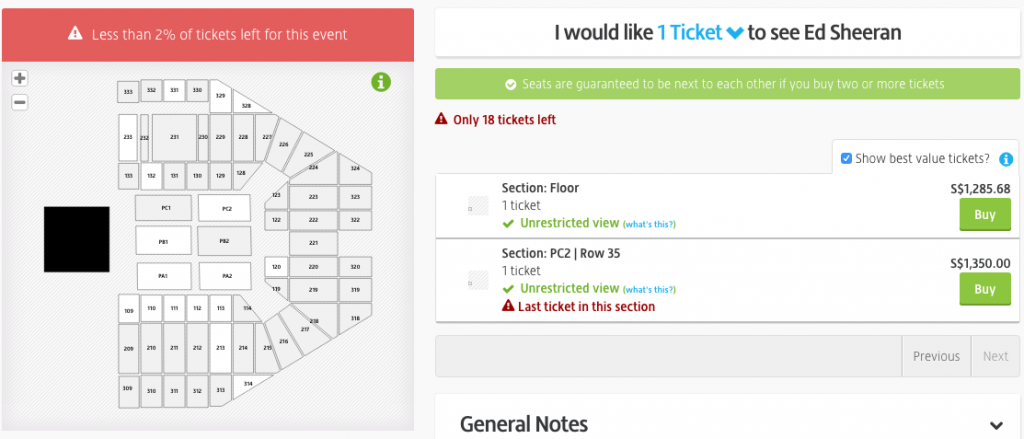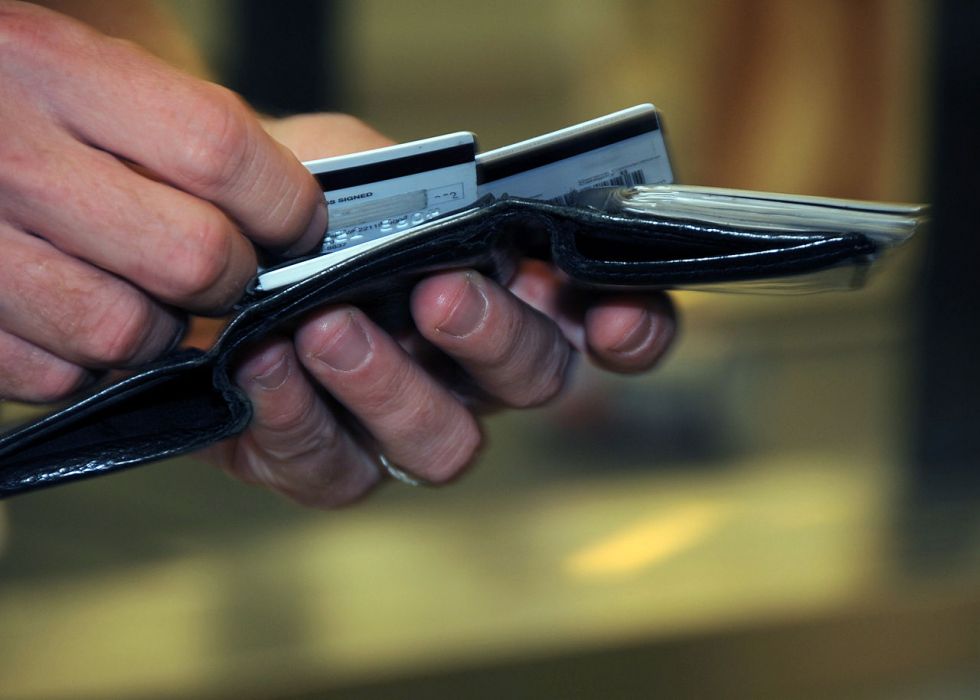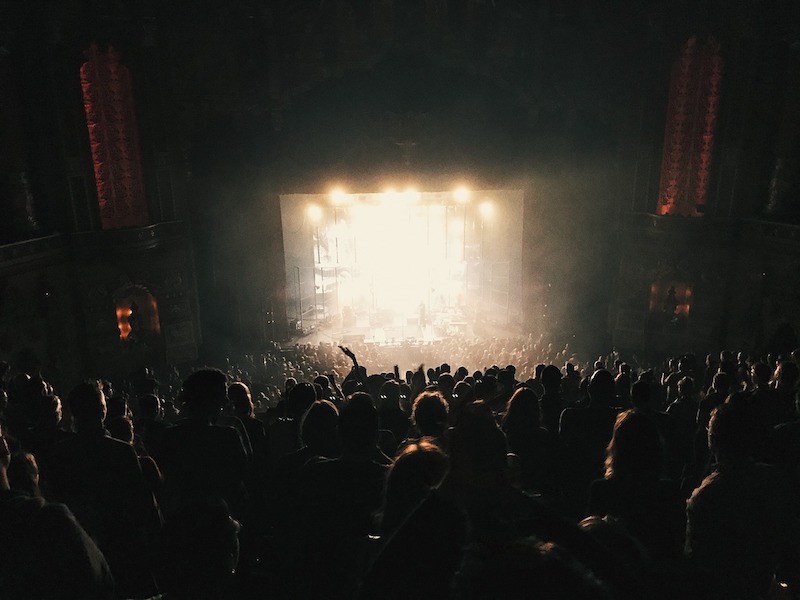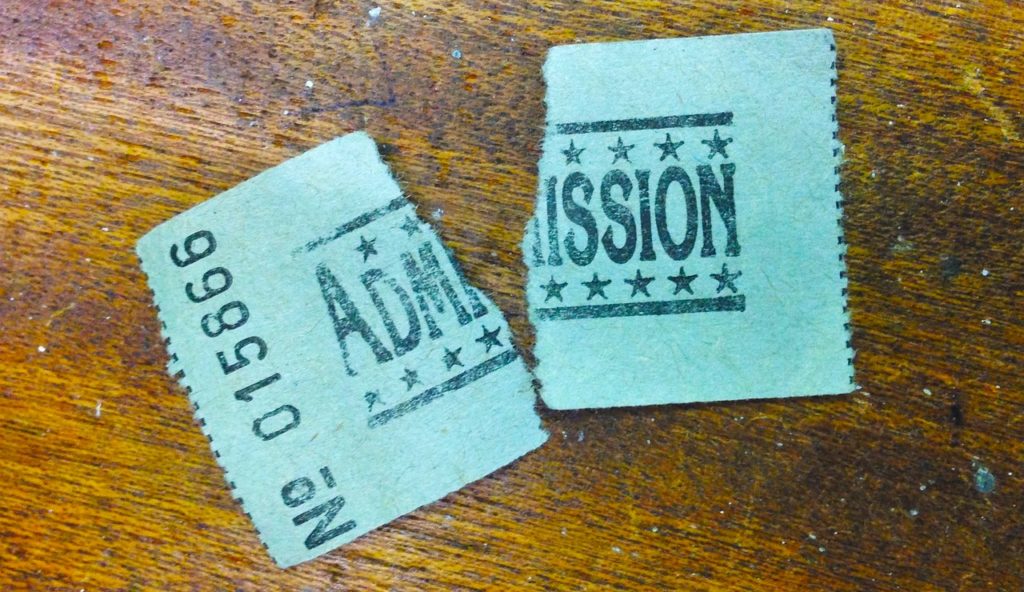This story was first published on Dollars and Sense
The recent outrage over scalpers of Ed Sheeran tickets were the perfect convergence of things that set Singaporeans off – high prices, unjust exploitation, and the Singapore Sports Hub.
Ticket scalping is acquisition of tickets with the intention of profiting from the subsequent sale, hopefully for a huge markup. This is hardly a new phenomenon. The heydays of shady characters standing outside performance venues with tickets in hand for sale might be over, but scalping is still very much a part of live concerts and sporting events. They just moved online to tout their tickets.
Just as we enjoy the convenience of buying tickets online and appreciate not having to line up for hours to buy tickets, scalpers too reap profits from the comfort of their living rooms (or bedrooms).
The rise of online marketplaces exacerbates the problem of scalping by rubbing salt in the wound. Now, devoted fans who weren’t so lucky to buy tickets can see just how much the scalpers are profiting at their expense. Artists, on the other hand, can see just how much money their fans are willing to pay to see them perform, while not getting a single cent of that money. Ouch. Seems like the only winners in this situation are the scalpers. So, why doesn’t someone do something to stop it?
Why does it happen? Economics, my dear Watson.

Scalping works for live events because there is a fixed supply of the item in question. This is different from formula milk powder (any brand, because they are all the same and just as good!), which people can find alternatives to when it is sold out in stores or simply wait for a restock. Ed Sheeran is only in Singapore for a limited time, and while I might want to perform covers of Ed Sheeran’s songs, I don’t think anyone would pay to see that.
Because there are more people who want to go to a show than there are tickets available, demand will almost always outstrip supply. Scalpers take advantage of this and are able to resell tickets at much higher prices.
If there is excess demand, you will see upward price pressure. Thus, you could say that tickets are incorrectly priced in the first place. However, when scalpers hoard tickets, they exacerbate the problem of scarcity (by reducing the supply of tickets) and then make a handsome profit by solving the problem (by making tickets available at a high price).

In the eyes of Economics, when a scalper and ticket-buyer make a transaction, both parties are better off. The scalper valued money more than the ticket, while the ticket-buyer valued the ticket more than the money they paid, even though they are paying much more than the original selling price. Thus, utility is maximised and Economists are smiling at the efficiency. Scalpers bring stability to the market by selling tickets at the highest price people are willing to pay.
Some would be outraged at the fact that just because a scalper managed to secure a ticket faster than fans, they are able to gain so much monetary benefit from the transaction. The money didn’t go to the people who contributed to the show — the artists, venue owner, or production company.
Then again, no one was forcing the customers to pay. If someone was willing to pay that much, why should they not be able to? Scalpers would also argue: if tickets were easy to come by, then we won’t exist! In other words, the ‘value’ that scalpers provide is a secondary market where tickets are available to those who really want them, and who are willing to show their desire by overpaying for these tickets.
Simple fix — just raise prices!

If artists charged more for tickets, it would increase the financial outlay scalpers need to put up, which also reduces the number of tickets they can hoard. At the same time, because the face value of the ticket would be closer to the actual value fans are willing to pay, the profit that scalpers would make on each ticket would also be reduced, thus reducing their incentive to scalp in the first place.
By increasing prices, the number of fans who want the ticket at the face value might also be reduced, thus reducing the number of disappointed fans who are not able to get tickets. There might be 100,000 people who want a $200 Ed Sheeran ticket, but perhaps only 20,000 of them may want it if it were priced at $500.
Sounds good, right? Raising prices looks like a win for artists and event organisers. So why aren’t ticket prices set higher in the first place?
So why don’t artists raise prices?
While it may seem silly to be pricing tickets too low, there are good reasons for it.
Appealing to the masses
For artists and sports organisations, an important social goal is to make tickets available to fans at “affordable prices”. They want to be able to tell their fans: “Tickets are affordable! Anyone can come!” No one wants to be seen as a greedy capitalist who squeezes money from loyal fans just because they are able to.
By keeping ticket prices low, artists are essentially subsidising fans who could not afford the market clearing price to see them perform. That is a laudable goal, though ironically it contributes to scalping.
Benefits of a full house
Another reason why prices are low is that a sold-out event is a goal of the organisers. Though they may make more money selling tickets at 4 times the price to an audience size that is half the seating capacity, it wouldn’t be much fun for those who do attend. No performer wants to play to a venue which is half-filled, and for sports teams, having a full-house of home team fans may just give them the decisive advantage.

In terms of public image, the perception of a successful concert or tour is one that is sold out. It also boosts the profile of the event when tickets sell quickly and generate hype. Taking the long-term view, giving as many fans the opportunity to attend an event broadens the fan base and strengthens loyalty to the brand/artist, which translates to support for years to come in the form of album, jersey or other sales.
Having a sell-out crowd also generates complementary revenues. Once event-goers are at an event, the event organisers stand to make money from overpriced food sales, merchandise, parking, and more.
Wanting to attract the ‘right’ crowd
Sometimes, one’s ability to pay isn’t indicative of one’s passion for the event. For instance, Taylor Swift fans would rather be surrounded by fellow screaming teen girls waving their handphones up in the air, LEDs at full power, than less enthusiastic people who were the ones who could afford to attend. Diehard football fans come from all walks of life, and not just the very wealthy.
Conclusion

Though rules and other measures try to prohibit ticket scalping, as long as the fundamental issue of a mismatch of supply and demand is not addressed and prices are set too low compared to what people are really willing to pay, scalpers will be here to stay.
Ironically, both fans who seek out and pay scalpers as well as artists/teams who want to keep things accessible for the fans that are responsible and complicit in perpetuating this broken system. And ultimately, it leads to putting more money in the pockets of scalpers.
Rock on.
DollarsAndSense.sg is a website that aims to provide interesting, bite-sized financial articles which are relevant to the average Singaporean. Subscribe to our free e-newsletter to receive exclusive content not available on our website.





Reader Interactions